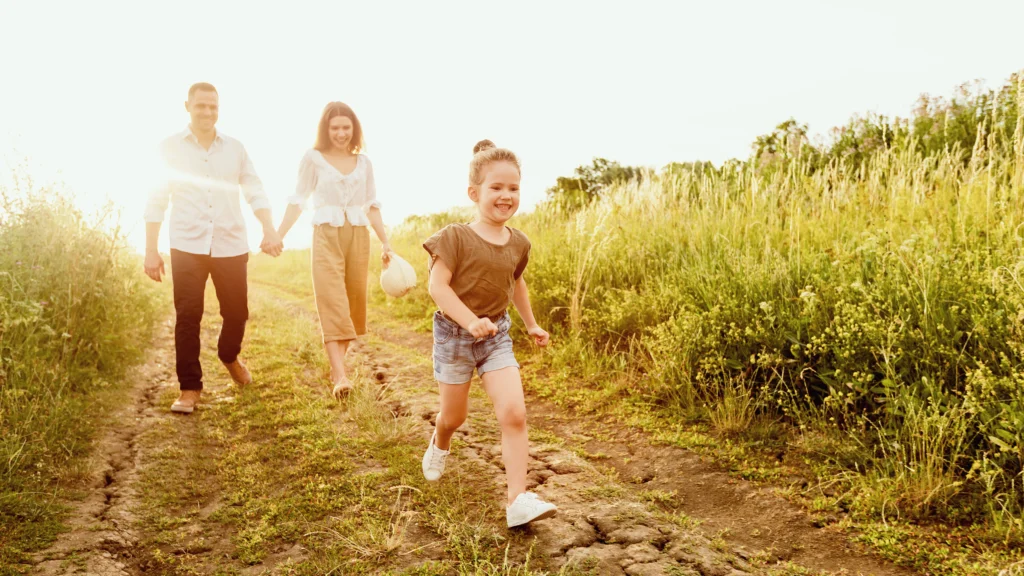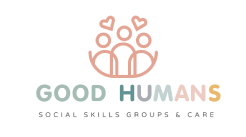Caregiver Coaching
Because caregivers deserve coaching too
At Good Humans, we believe meaningful change starts with the people who know the child best. Caregiver coaching is a one-on-one, tailored service designed to help caregivers feel confident, consistent, and equipped to support their child’s social and emotional growth.
While we share feedback during drop-offs and quick updates, true caregiver coaching goes deeper. These individual sessions allow us to focus entirely on your goals, challenges, and questions without the distractions of group time.
Caregiver involvement isn’t just encouraged; it’s part of what makes progress last. Research, including the UCLA PEERS® program, consistently shows that caregiver participation is one of the strongest predictors of progress in social skills interventions. Studies have found that when caregivers are actively involved, children show greater gains in friendship quality, social confidence, and long-term maintenance of skills.

What Caregiver Coaching Includes?
Each meeting is customized to your child’s current goals and your family’s needs. Topics may include:
- Understanding what your child needs to feel confident around peers
- Knowing what to say (and what not to say) when your child gets stuck or frustrated
- Learning how to handle moments like losing a game, being left out, or getting too silly with friends
- Using small, everyday moments like dinner conversations, school pick-up, or video game time to practice social skills naturally
- Finding ways to stay calm, supportive, and consistent when things get tough
Coaching sessions also include data review so caregivers can see real progress over time. Together, we look at trends in participation, engagement, and skill use during sessions. This makes it easier to celebrate growth, identify what still feels tricky, and set the next goals with clarity and purpose.
Sessions typically run 45–60 minutes and may occur monthly or more often depending on your program level.

Why It Is Separate from Group Time?
While brief updates at pick-up are helpful, they rarely allow enough time to problem-solve or teach new strategies effectively. Dedicated caregiver sessions create time to:
Ask deeper questions
Review your child’s progress
Learn specific tools and scripts
Practice real-world application with coaching and feedback
This structure ensures that your child gets consistent, well-supported teaching both in and outside of the group, while giving caregivers the focused time they need to grow their own skills and confidence.
Between-Session Support
Caregiver coaching also includes text check-ins for those real-life moments that come up between sessions. If something happens, such as a tricky peer situation, a school issue, or a question about how to respond, caregivers can send a quick message. The Good Humans team responds as soon as possible, typically later that day or the next morning, with feedback and ideas families can put into action right away.
The Research Behind Caregiver Involvement
Empirical studies consistently show that caregiver participation amplifies outcomes in social skills and behavioral programs. Research from the UCLA PEERS® model and related interventions highlights that when caregivers are actively involved:
- Children maintain social gains longer after treatment ends (Laugeson et al., 2012)
- Families report reduced stress and improved communication at home (McMahon et al., 2020)
- Caregivers feel more confident supporting their child’s friendships and independence (Lerner & Mikami, 2012)
- When caregivers learn the “how” behind the program, progress happens faster and lasts longer.

Why Families Value It?
Caregiver coaching is for the families who know their child needs something different. Maybe full-time therapy doesn’t feel right, but you also know your child needs support to feel more confident, flexible, and connected. These sessions help you figure out what is really getting in the way and what you can do to make things feel easier at home, school, and with peers.
It is not about being perfect. It is about getting practical tools, real guidance, and a clearer picture of your child’s needs. Most families leave these sessions feeling lighter, like they finally have someone who understands their child and their role in all of it.
About Us
Company Details
Address
Inland Empire Office Coming Soon!
Phone
Services
copyright © 2025 Good Humans Social Skills Group & Care. All Right Reserved.
